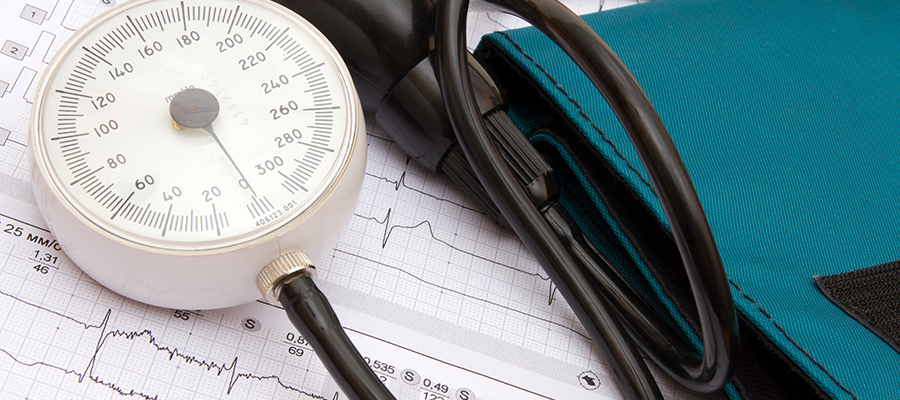High blood pressure (HBP) is not just a problem for people struggling to control their weight. According the U.S. Department of Health and Human Services, people over the age of 55 have a 90% chance of developing the condition at some point in their lives. Whether you have been already diagnosed with the disorder, are at risk due factors such as a family history, or are simply concerned with maintaining good health, knowing the effects of weight loss/gain can be the difference between a happy, healthy life and a constant struggle to beat HBP.
What do the Numbers Mean?
A normal blood pressure equals a Systolic of less than 120 mmHg and a Diastolic of less than 80 mmHg; or <120/<80.
Prehypertension (the condition preceding high blood pressure and an area of high concern) is anything between a Systolic of 120-139 mmHg over a Diastolic of 80-89 mmHg; or 120-139/80-89.
Hypertension (High Blood Pressure) is a Systolic greater than 140 mmHg over a Diastolic of higher than 90 mmHG; or 140+/90+.
Weight Loss and HBP Patients
There has been a long-established link between obesity and HBP. Excess weight, especially around the waist (called abdominal obesity), causes your cardiovascular system to work harder, causing an increase in blood pressure and putting one at risk for other cardiovascular problems, such as heart disease.
Studies of overweight individuals already diagnosed with HBP found a direct relationship between the amount of weight lost and the lowering of blood pressure. Participants losing at least 9 pounds could expect to see a drop in their systolic and diastolic pressures by an average of 4.5 mmHg/3 mmHg, a drop outperforming that of many medications currently on the market.
Weight Gain on non-HDP Patients
Conversely, studies of even a small weight gain of 5 pounds a year among healthy, non-HBP patients found an average increase in pressure readings from 114 mmHG to 118 mmHg. Study participants who experienced weight gain mostly around the abdomen had even higher increases.
What it Means for You
Healthy, at risk, or already diagnosed with high blood pressure or prehypertension, your weight matters. The average American gains 5 pounds every year during the holiday season alone. Complacency regarding those little weight gains can add up quickly, if one isn’t vigilant. If one is already overweight and diagnosed with HBP, the risk of additional weight gain and the benefits of weight loss might be just the motivation to take control.
Plan and Succeed
Talk with your doctor about a heart-healthy diet (such as DASH) and implementing an exercise plan. He/she can discuss with you what might be too much – or too little – to undertake.
Regularly monitoring your progress can also be invaluable in your journey to a healthier you. Many easy-to-use, at-home blood pressure monitors are available from numerous online retailers such as Baron Medical, and these devices can provide you with immediate information at the touch of button.
The most important thing is to develop a plan and take action. Lose the extra weight and get the health and the physique you’ve always wanted.

